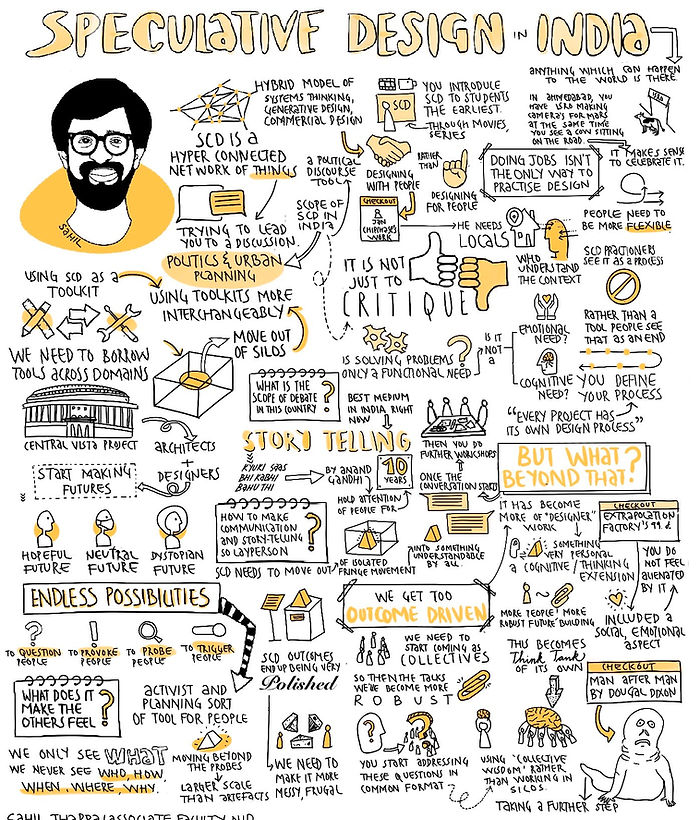top of page
Speculative and Critical Design in India
8 August 2020 | Friday
Critical Design exists in a privileged space whether it be an academic endeavour or a private museum exhibit. This restricts its impact on parts of the world where design has recently started to make its mark. We live in a country where the dystopic futures are current realities. In such scenarios what is the purpose of Speculative and Critical design in India?
Where does SCD fit in the context of developing countries?
Is there any way for Critical and Speculative practice to generate concrete actions in order to reach different futures?
Who benefits from such projects?
Does it end at a sparkling discussion?
Session 1
Speculative and Critical Design in India is a series of interviews with SCD practitioners trying to answer these questions. First in the series, we had Jon Rogers and Martin Skelly. Jon is the founder of Product Research Studio and has worked with organisations like BBC, Microsoft, NASA, and the Victoria and Albert Museum. Jon has a PhD in neural networks from Imperial College London and built up his knowledge while being a tutor and researcher at the Royal College of Art. Martin works with the Product Research Studio at DJCAD. Martin worked for a design week top 100 design agency across Business Development, Product Design and Creative Technologies. His work in the industry was featured widely in the media and has been exhibited in the Design Museum, Natural History Museum and the Victoria and Albert Museum.

Session 2
The second guest for this series was Sahil Thappa. He is a Maker, Tinkerer and an alumni of Product Design programme at National Institute of Design (2017). He has collaborated and worked with organisations and firms like Mozilla, Riverside School, Design Against Crime, University of Dundee, Design Regio Kortrijk, Hill Hacks, Ahmedabad Prison, JSW Foundation, Quicksand, FabLab etc. Currently he is faculty in Product Design and teaches making, open source and systems thinking. He heads User Centred Design Lab at Paldi campus and is looking at an anti-disciplinary approach to fuse design tools & methods, ecology, technology, tinkering and open source.

bottom of page